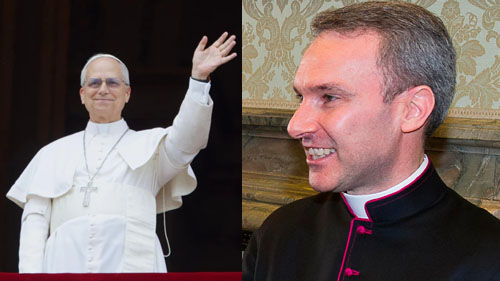| Recent Featured Videos and Articles | Eastern “Orthodoxy” Refuted | How To Avoid Sin | The Antichrist Identified! | What Fake Christians Get Wrong About Ephesians | Why So Many Can't Believe | “Magicians” Prove A Spiritual World Exists | Amazing Evidence For God | News Links |
| Vatican II “Catholic” Church Exposed | Steps To Convert | Outside The Church There Is No Salvation | E-Exchanges | The Holy Rosary | Padre Pio | Traditional Catholic Issues And Groups | Help Save Souls: Donate |  |









 " />
" /> " />
" /> " />
" /> " />
" /> " />
" />




"Trade Agreements Are Not The Place To Make Laws On ‘Gender Identity’"
nationalreview.com
"Social policy should not be determined by a trade agreement. In a letter delivered to President Trump earlier this month, 46 conservative members of Congress said they were 'deeply concerned by the unprecedented inclusion in the U.S.-Mexico-Canada Agreement (USMCA) of sexual orientation and gender identity (SOGI) language, for the first time in a Free Trade Agreement.'
This language is housed in Article 23.9 and Article 23.12, 23 being the chapter on labor. It requires the parties to protect workers from discrimination based on sexual orientation and gender identity (SOGI), and to promote 'equality' in these areas. As we have seen in recent years, of course, such edicts often run headlong into the constitutional right of religious business owners not to violate their core beliefs, in addition to raising thorny questions in a variety of areas including bathroom privacy. This stands to take away freedoms from every private business and churches as well. Congress is also concerned this would violate the constitutional separation of powers because Congress has steadfastly refused to include SOGI language in federal law, and the executive branch does not have legislative power to force new policy through a trade agreement.
The member letter is right. A trade agreement is not the appropriate place to adopt such a controversial social policy. As the letter states, 'It is especially inappropriate and insulting to our sovereignty to needlessly submit to social policies which the United States Congress has so far explicitly refused to accept.' And the agreement is due to be signed tomorrow.
To be clear, there is a legal question of whether the current language would create a new obligation for compliance. But there is also a concern about the precedent this would set for future trade agreements and the strong likelihood that an activist court would point to the language as an excuse to cement these policies in U.S. law. On top of that, the language stands in stark contrast to the Trump administration’s own approach to the issue, as the president is working to undo Obama-era executive orders that went beyond federal law to implement SOGI protections in certain contexts...
Barack Obama issued executive orders in 2014 declaring 'gender identity' to be a protected class in government employment and contracting. It’s also a problem when an executive agency like the U.S. Trade Representative (USTR) rewrites anti-discrimination law in a trade agreement. A trade agreement may require approval from Congress, but it is not given the same level of scrutiny as real legislation.
Because Congress has granted the president 'Trade Promotion Authority' (TPA), he has the ability to negotiate fast-tracked treaties. (Notably, this delegation of authority has been questioned as unconstitutional.) Congress will not be able to debate the language negotiated by the president or add amendments. Congress will be presented with an up-or-down vote on the entire agreement. That isn’t how laws should be made, and the USTR should not oblige Congress with a duty to affirmatively legislate. But because of TPA, if the SOGI provisions are included in the agreement, they will become law unless Congress is willing to vote down the entire thing. They will be passed by both houses and signed by the president."
Sign up for our free e-mail list to see future vaticancatholic.com videos and articles.
Recent Content
^